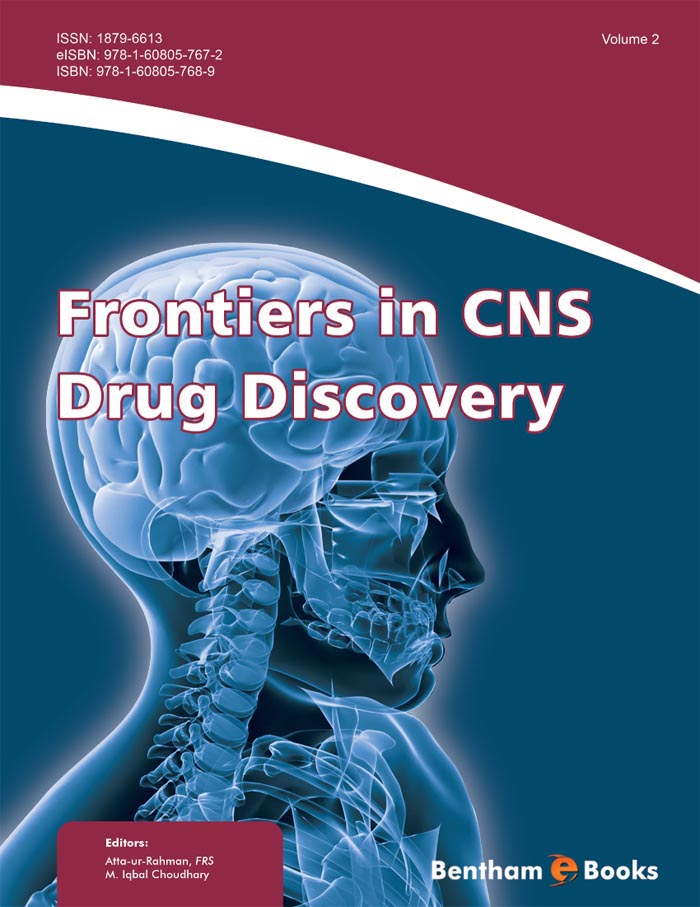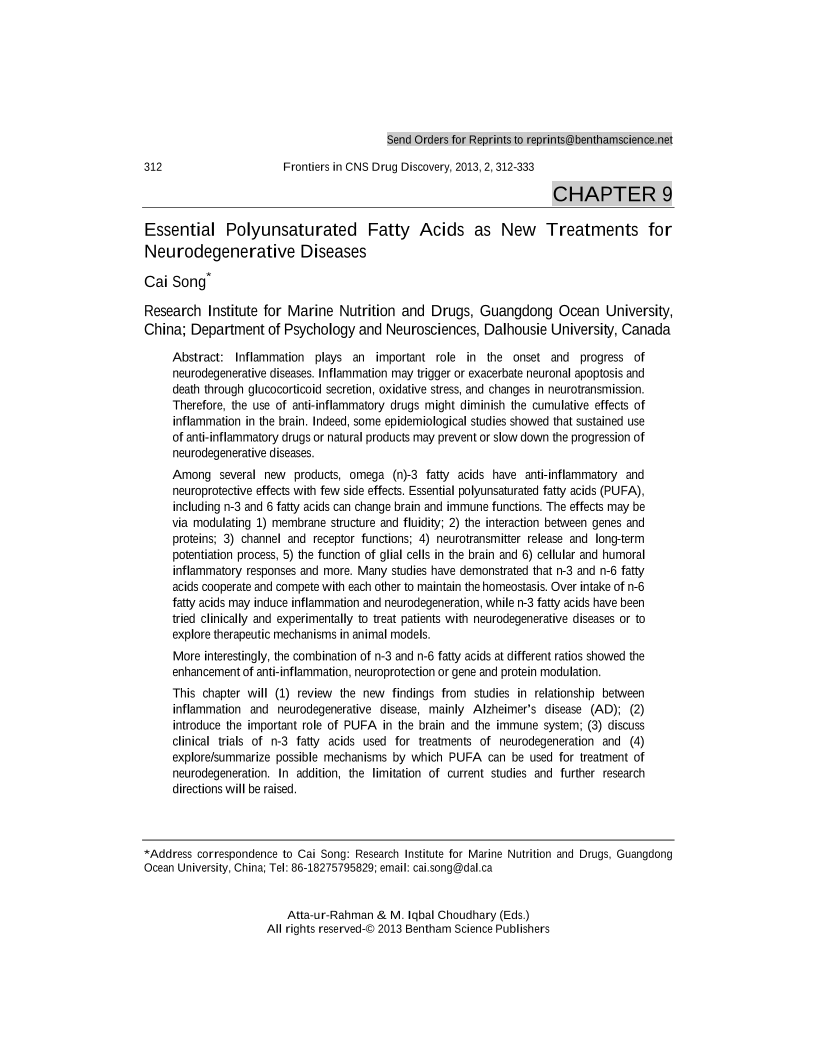Essential Polyunsaturated Fatty Acids as New Treatments for Neurodegenerative Diseases

- By Cai Song1
-
View Affiliations Hide Affiliations1 Research Institute for Marine Nutrition and Drugs, Guangdong Ocean University, China.
- Source: Frontiers in CNS Drug Discovery: Volume 2 , pp 312-333
- Publication Date: September 2013
- Language: English
Essential Polyunsaturated Fatty Acids as New Treatments for Neurodegenerative Diseases, Page 1 of 1
< Previous page | Next page > /docserver/preview/fulltext/9781608057672/chapter-9-1.gif
Inflammation plays an important role in the onset and progress of neurodegenerative diseases. Inflammation may trigger or exacerbate neuronal apoptosis and death through glucocorticoid secretion, oxidative stress, and changes in neurotransmission. Therefore, the use of anti-inflammatory drugs might diminish the cumulative effects of inflammation in the brain. Indeed, some epidemiological studies showed that sustained use of anti-inflammatory drugs or natural products may prevent or slow down the progression of neurodegenerative diseases. Among several new products, omega (n)-3 fatty acids have anti-inflammatory and neuroprotective effects with few side effects. Essential polyunsaturated fatty acids (PUFA), including n-3 and 6 fatty acids can change brain and immune functions. The effects may be via modulating 1) membrane structure and fluidity; 2) the interaction between genes and proteins; 3) channel and receptor functions; 4) neurotransmitter release and long-term potentiation process, 5) the function of glial cells in the brain and 6) cellular and humoral inflammatory responses and more. Many studies have demonstrated that n-3 and n-6 fatty acids cooperate and compete with each other to maintain the homeostasis. Over intake of n-6 fatty acids may induce inflammation and neurodegeneration, while n-3 fatty acids have been tried clinically and experimentally to treat patients with neurodegenerative diseases or to explore therapeutic mechanisms in animal models. More interestingly, the combination of n-3 and n-6 fatty acids at different ratios showed the enhancement of anti-inflammation, neuroprotection or gene and protein modulation. This chapter will (1) review the new findings from studies in relationship between inflammation and neurodegenerative disease, mainly Alzheimers disease (AD); (2) introduce the important role of PUFA in the brain and the immune system; (3) discuss clinical trials of n-3 fatty acids used for treatments of neurodegeneration and (4) explore/summarize possible mechanisms by which PUFA can be used for treatment of neurodegeneration. In addition, the limitation of current studies and further research directions will be raised.
-
From This Site
/content/books/9781608057672.chapter-9dcterms_subject,pub_keyword-contentType:Journal -contentType:Figure -contentType:Table -contentType:SupplementaryData105

